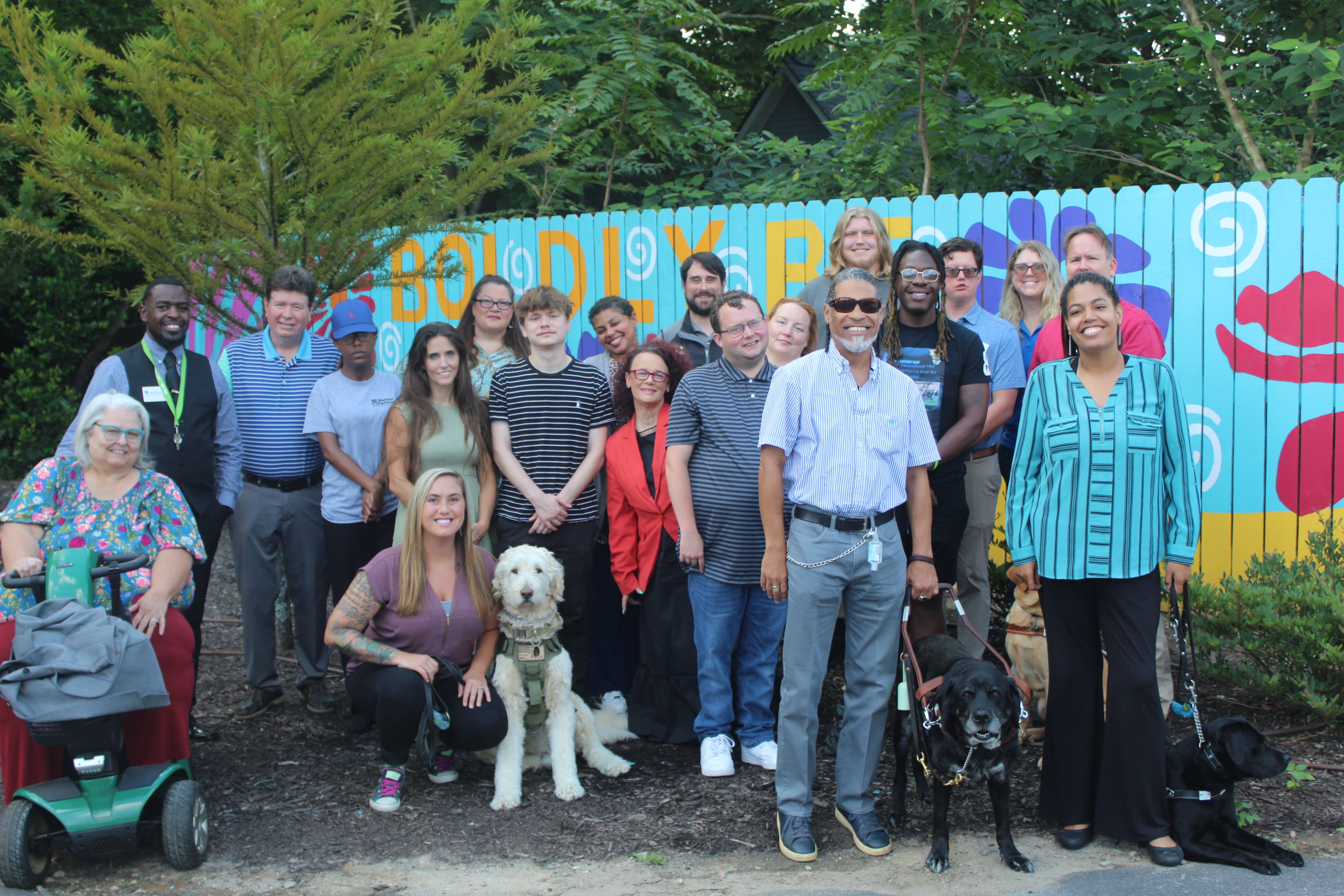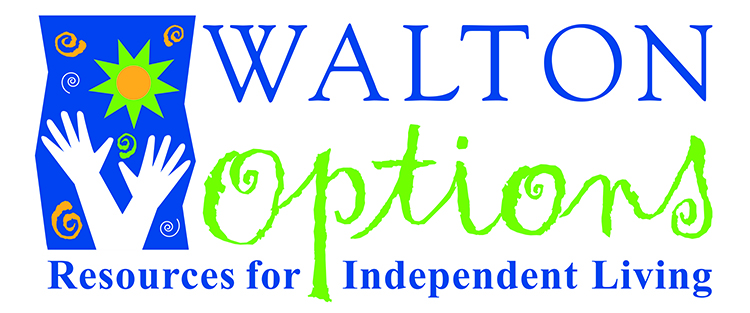Three-Day Peer Support Workshop.
Certified Peer Supporters!

Peer Support Training 10/16-10/18
At Walton Options, peer support forms the foundation of many of our services. As such, we recently hosted a three-day interactive peer support training for staff. The workshop was led by Linda Pogue, Disability Rights and Independent Living Program Director, and Ken Mitchell, Advocacy Coordinator, both of disABILITY LINK. Peer support education is used to prepare and empower peer supporters to assist people with disabilities, or peers, sustain independent living given resources and support. Through this interactive coaching, peer supporters learned techniques and skills, such as specific questions and effective language, to build a successful relationship with peers and to guide them toward achieving independence.
A peer supporter, also known as a peer advocate, is a person with a disability who has learned life strategies on how to be a self-advocate, and how to live independently. Peer advocates do not tell peers how to live their lives; rather, they offer the benefits of their own experiences to encourage and support the peer’s desired goals.
Linda highlighted the importance of peer advocates learning to listen and communicate properly with their peer so the proper resources and accommodations will take place. Ken emphasized that a peer supporter should be nonjudgmental, open, and able to listen effectively to the wants, needs, and goals of the peer. Linda and Ken were consistent in reminding peer advocates that their primary responsibility is to support people with disabilities to have a self-determined life through support and resources. As peer advocates engaged in role-play exercises with diverse scenarios, the training reiterated the importance of giving the peer enough information to make informed choices.
Participants left training even more focused on peer success, and with new skills to allow them to have a more fruitful relationship with peers. These skills included being an active listener and effective communicator through open-ended questions, establishing trust and setting boundaries, defining problems, supporting peer self-direction, and helping create a “circle of support.”

